Let's talk about GovChat
Exploring the boundaries and limitations of competition law
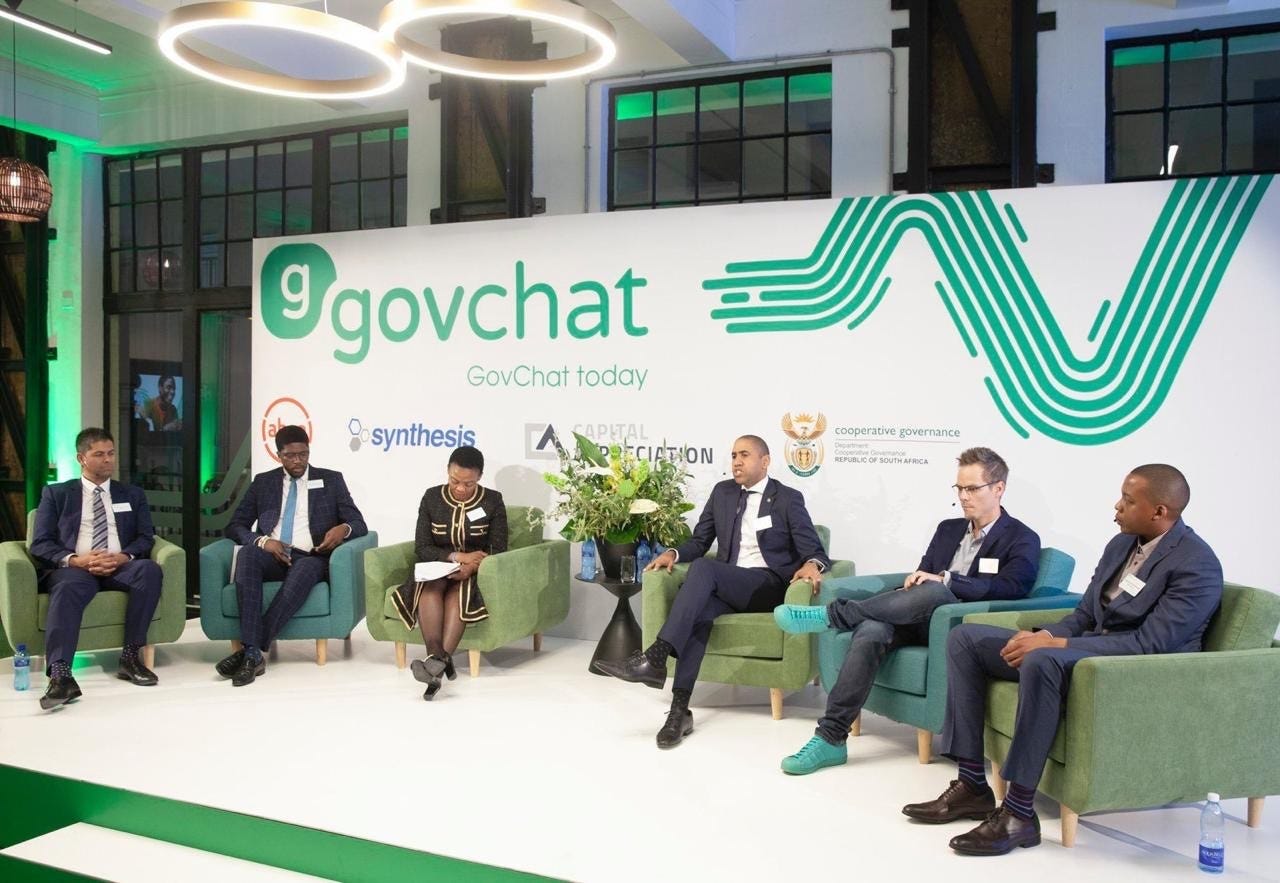
In an earlier post, we updated you on an ongoing South African competition law case that concerned GovChat and #LetsTalk. I promised to unpack some of the issues I have with the case in a subsequent post, so here you go.
For context, these are two start-ups in South Africa. GovChat helps the government to connect to citizens through WhatsApp for things, such as processing social security applications, processing financial and other support during the COVID-19 pandemic, and even to allow citizens to complain about bad roads in their communities.
Meanwhile, #LetsTalk, a subsidiary of GovChat, is a 10-week group support programme that uses a family-centred approach to, among other things, build HIV prevention knowledge and skills.
In other words, both these services are doing the Lord’s work. In the remainder of this post, I will refer to them collectively as GovChat.
So, what happened? In November 2020, GovChat complained to South Africa’s Competition Tribunal that WhatsApp abused its dominance by threatening to off-board GovChat, which was said to be an exclusionary act,1 and therefore prohibited under South African competition law.
GovChat argued that because WhatsApp is so dominant, other platforms (such as Signal and Telegram) did not have the scale and reach to host GovChat’s services,2 forcing GovChat to use WhatsApp. As such, the off-boarding: (i) threatened GovChat’s existence; (ii) prevented GovChat from expanding and competing against WhatsApp; and (iii) will adversely affect the millions who benefit from GovChat.
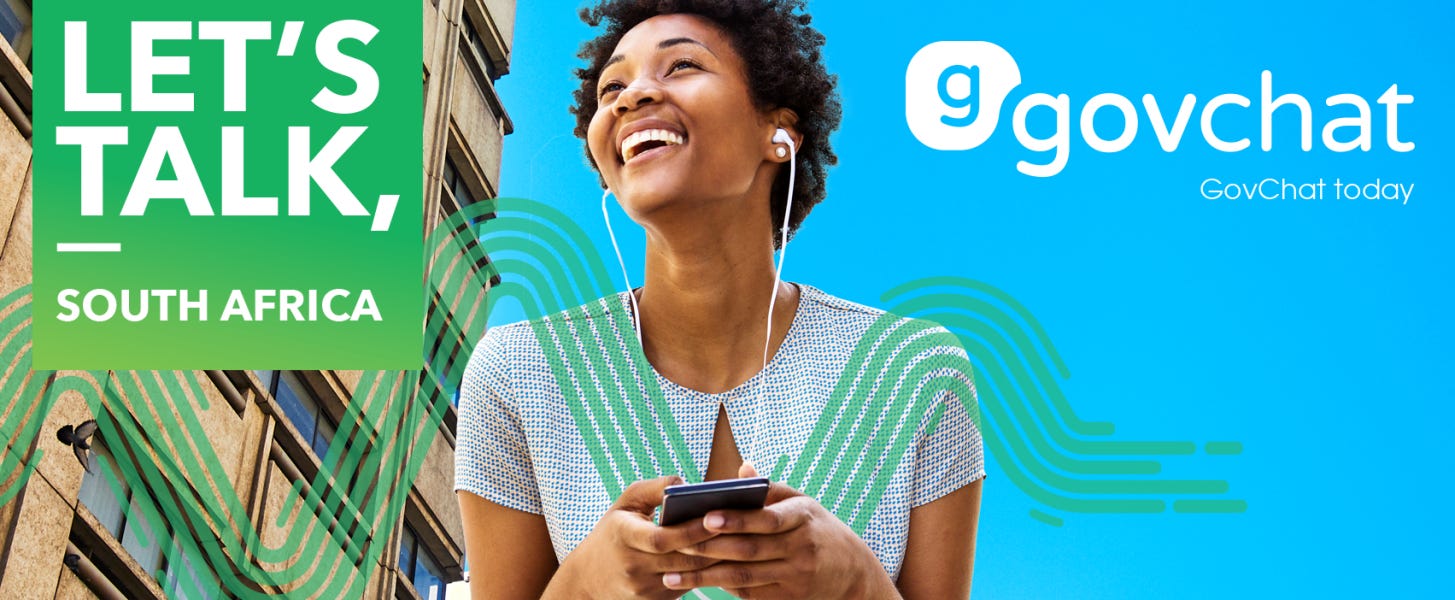
In response, WhatsApp argued that GovChat is being used as a communications platform for the government, but it is not actually owned by the government, which is against WhatsApp’s terms of service, and to make matters worse, GovChat repeatedly refused to comply. WhatsApp also argued, and I agree, that the conduct cannot be anticompetitive because WhatsApp does not compete with GovChat.
In March 2021, the Tribunal issued an interim order to to prevent the off-boarding, pending the outcome of the complaint. In the view of the Tribunal, (i) there was a prima facie case of an exclusionary practice; (ii) WhatsApp & Facebook failed to rebut the allegations by showing technological, efficiency, or other pro-competitive benefits; and (iii) GovChat’s invaluable service was worth protecting.
In March 2022, the Competition Commission of South Africa referred the Tribunal to prosecute Meta and its subsidiaries (WhatsApp & Facebook) for abusing their dominance through the threatened off-boarding.
Besides the off-boarding, the Commission was more broadly concerned with WhatsApp’s terms of service; arguing that particular terms on how data can be used limited innovation, limited the development of new products and services, restricted the entry and expansion of competitors, and ultimately, were exclusionary.
This quote appears to capture the Commission’s main concern:
“…the Commission also found that the terms and conditions…are designed to shield and insulate Facebook from potential competition, such as the potential competition presented by…GovChat…”
Now, as anyone who speaks to me would know, I am very concerned (maybe too concerned) about the competition problems posed by Big Tech (not to mention the privacy, political, and mental health problems). I have actually written two separate articles (here and here) and a forthcoming book chapter where I discuss these problems, so I will not delve into those issues here.
But suffice it to say that I am in favour of increased scrutiny of the business practices of the Big Tech giants because I think these very practices are responsible for a number of the problems we face today.
I am also generally in favour of using competition law in developing countries to protect indigenous companies in a way not seen today in developed countries (in fact, and I digress slightly, my doctoral research focuses on solving that very problem). I also think it is especially important to protect homegrown players that operate in the digital economy, like GovChat.
So, on paper, I should be in favour of this investigation. But sadly, I am not because I do not think it is a competition case.
It is unclear how WhatsApp faces potential competition from GovChat. WhatsApp is not even a service that can house its potential competitors. Consider Google’s Play Store: it effectively allows Google, through the terms of service, to determine what applications get downloaded onto Android phones. So, in theory, Google could exclude a new, innovative search engine app from being downloaded onto Android phones if the new entrant could outcompete Google Search.
Coincidentally, I heard of something very similar happening: Chooya, a Nigerian start-up, intended to provide search services to people who did not have internet access, but Google did not grant them access to the Play Store (citing ‘privacy’ reasons). In that situation, there is more of a credible basis to impute an anticompetitive intention lurking behind the façade of ‘terms of service’ because there is a direct competitive threat: Chooya threatens Google Search.
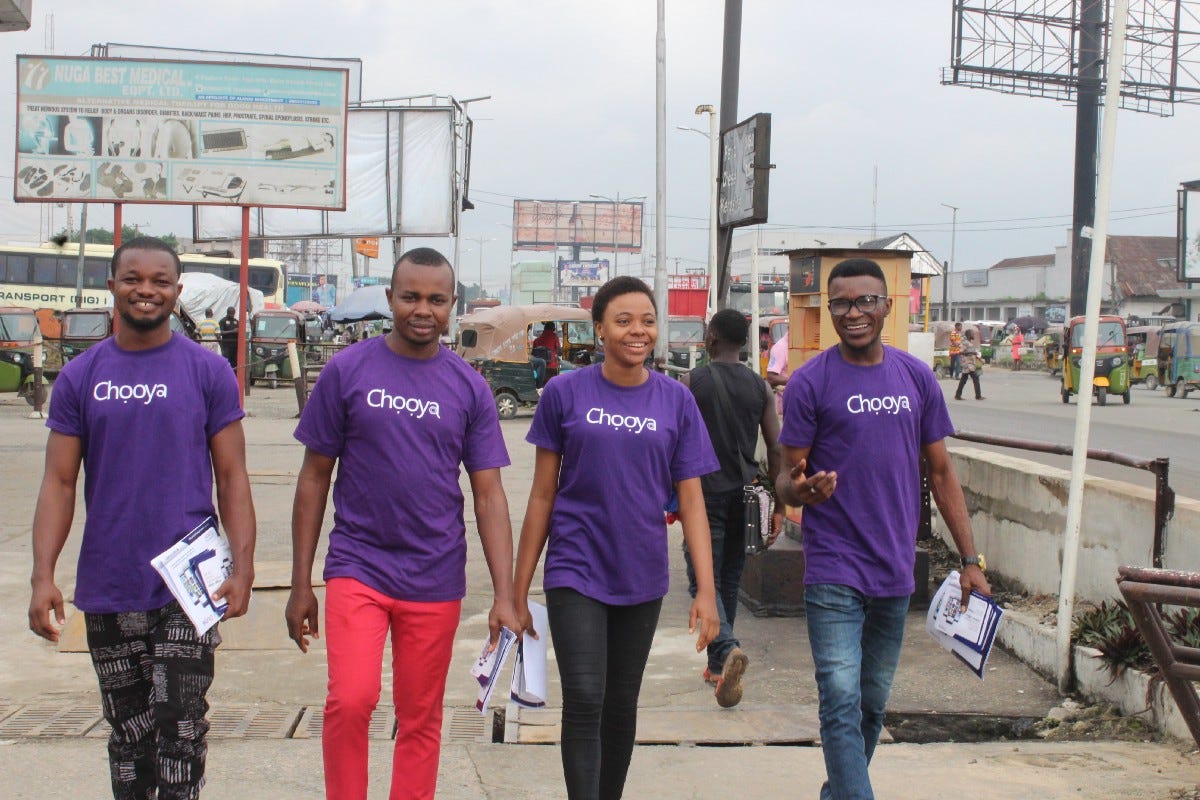
But with WhatsApp and GovChat? GovChat cannot rise through and become a dominant service on WhatsApp, so much so that it unseats WhatsApp’s dominance.
By the logic in the investigation, any removal from a dominant platform would be anticompetitive. Compare with another instance where a prominent and established Nigerian business publication was using WhatsApp to disseminate their stories, but their WhatsApp account was closed down because using WhatsApp in that way violated the terms of service. But how can we possibly say that was anticompetitive?
It is also unclear how WhatsApp would benefit, financially, from off-boarding GovChat—which, according to GovChat, has 9.2 million active users and has processed 630 million messages.
Now, I do not agree with WhatsApp’s rationale for the off-boarding—i.e., that GovChat is effectively impersonating the South African government. Because, regardless of whether GovChat was made by the government, the fact remains that it was made for the government, the government relies on it, and the government is yet to complain about its existence.
Still, that does not make this a competition law case: there is no competitive harm to GovChat because it is not competing with WhatsApp.
You could argue that WhatsApp should grant access because it is a dominant player and it is providing an essential service with few alternatives, and as such, it has a special responsibility (remember the Peter Parker principle from our first post? With great power comes great responsibility).
There are some indications that the Commission might be thinking in this way. In a press release, the Commission said, “WhatsApp Messenger provides increasingly essential channels for users to communicate and for businesses and government to access customers and citizens respectively,” (emphasis added).
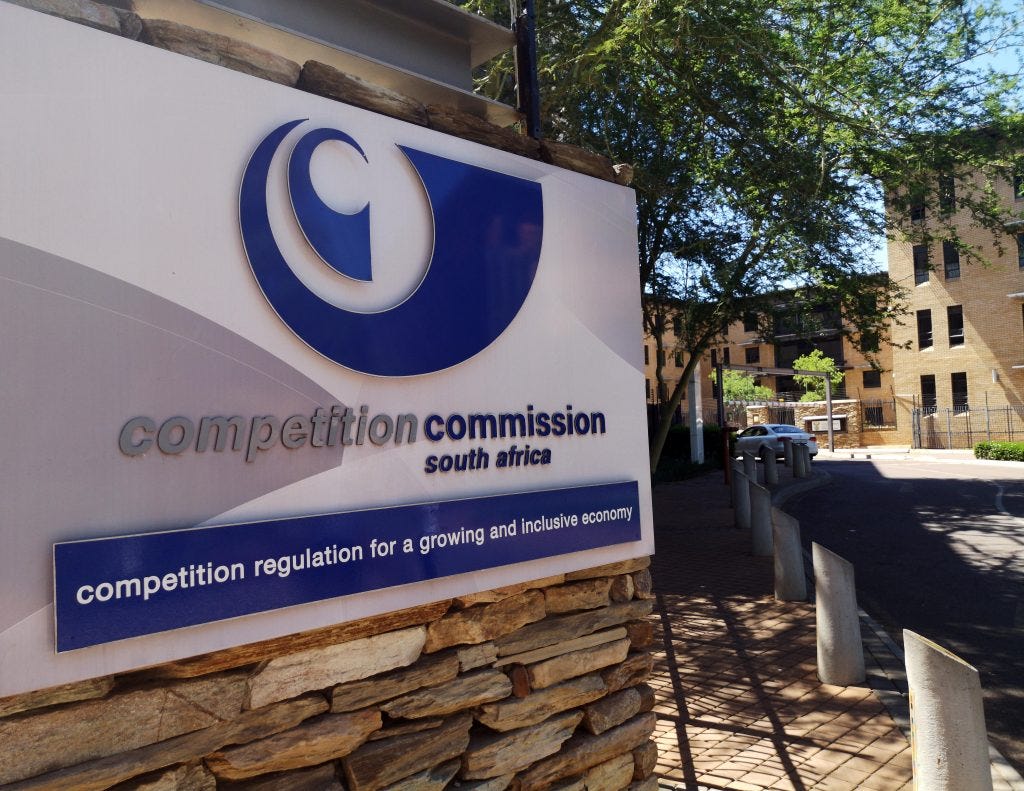
Fortunately for them, that takes you down a long line of refusal to supply cases, which are well established in competition law, and could make this a competition issue.
In a nutshell, refusal to supply is when a dominant firm refuses to supply or give access to an essential facility or essential input that is required to operate in a downstream market.
For example, refusing to supply raw materials, refusing to grant access to rail infrastructure (like train tracks), refusing to grant access to storage facilities, or to borrow from Temidayo, if Lagos State was to refuse to grant access to the BRT lane to other bus transit operators. In these instances, competitors need access to the facility, service, or input in order to compete.
We could view access to WhatsApp as an essential service in this same way (this has also been mentioned elsewhere). The remedy here would be to force WhatsApp to grant access to its platform because it is an essential service.
Of course, this might sound quite radical. After all, companies should be free to enter into agreements with whoever they want. The law should not encroach on or erode or restrict the freedom that natural and legal persons have to legally contract with whomever they please.
However, competition law does exactly that, but there is a very high bar, and understandably so. The essential facility or key input must be said to be indispensable to a competitor attempting to compete in the downstream market. The indispensability criterion is met where the duplication of the input is physically impossible, legally impossible, or not economically viable, or there is no real or potential alternative.3 The input must also be essential and not merely convenient or useful.4 And the refusal must lead to the direct elimination or significant restriction of effective competition in the downstream market.5
Be that as it may, there are at least two reasons why I do not think this doctrine would avail GovChat. First, most refusal to supply cases are where a player is operating upstream and downstream, but that is not the case here: WhatsApp is not operating in GovChat’s market. Unless there is evidence that WhatsApp intends to produce a similar service to facilitate government communications, then we would have a more credible basis to ground a refusal to supply allegation. But there are no indications, at least from the official documents, that that is the case.
Second, and crucially, it is not clear that WhatsApp is indispensable. Granted, WhatsApp is dominant and provides unparalleled reach. But that is not sufficient, especially when considering the fact that GovChat has its own app,6 and it can also be accessed through Facebook Messenger. The crucial point here is: there is nothing unique about WhatsApp that necessitates GovChat being on the platform. If anything, the service could, in theory, be replicated on Signal and Telegram.7 And that, in my view, means that the indispensability requirement is not satisfied.
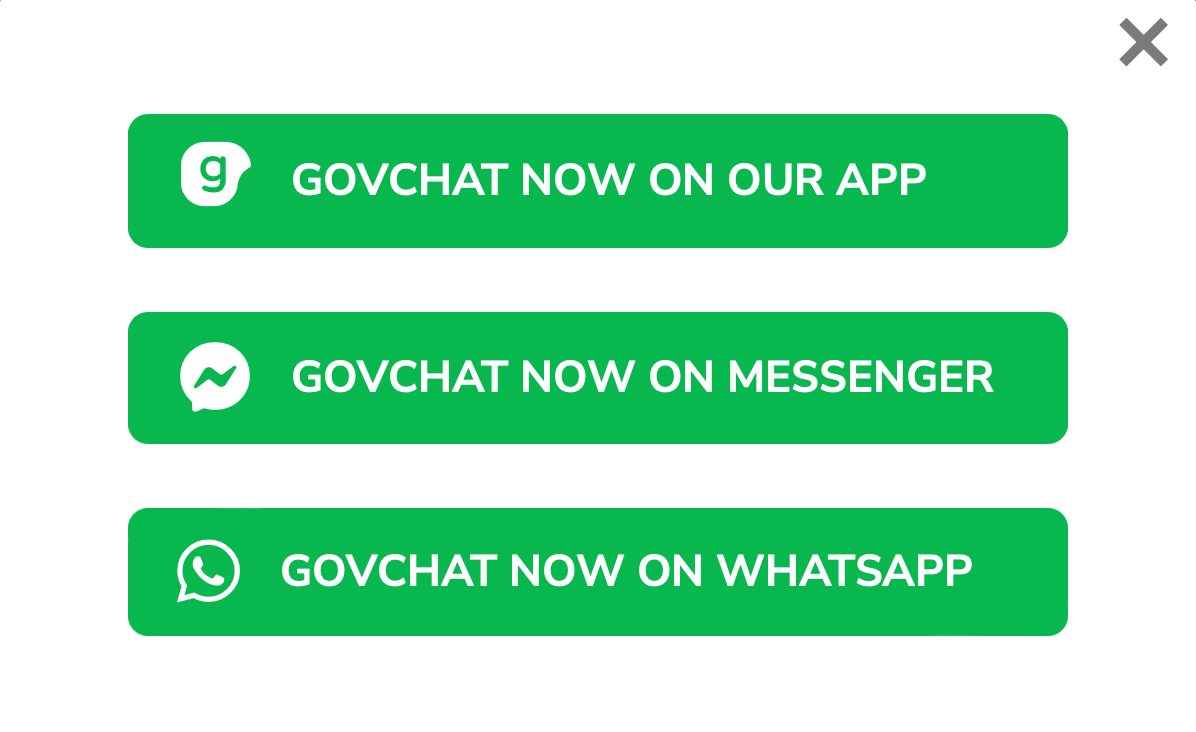
Nevertheless, I do understand GovChat’s grievance. Dominant players, particularly those in the online space, are increasingly becoming an essential service. These entities are becoming so central to our public, private, and professional lives, and it is unsustainable for their terms of service (and business strategies, more generally) to be generated in a context where they are mainly motivated by profit maximisation.
These platforms should provide access in a manner that is fair. But what exactly constitutes ‘fair’ access? Besides, who gets to determine what is fair? And importantly, fairness to who? These questions, and others I have raised in another Compedia post, must be answered to determine our approach to the digital economy.
Clearly, a broader discussion is needed to address these questions, but that discussion centres on how we should regulate online platforms, which extends beyond the remit of competition law.
Before you go…
…here are some recent developments in African competition law:
Coca Cola in South Africa: The Competition Appeal Court in South Africa has ruled that Coca Cola was in breach of merger conditions when its subsidiary laid off 368 employees in 2019. The Competition Commission appealed a decision of the Tribunal which found that Coca Cola had substantially complied with its merger obligations, which aimed to protect particular employees from being sacked as a result of two mergers in May 2016 and September 2017. Coca Cola argued that the retrenchments were due to the macro-economic climate, a sugar tax, and increases in the price of sugar and other raw materials. As such, they were necessary to ensure profitability. However, this argument was undermined by the fact that the positions of the retrenched employees were subsequently duplicated.
Price increases in Kenya: The Consumers Federation of Kenya has raised concerns that many retail chains are taking advantage of the ongoing Ukraine war and exaggerating their prices. It called on the Competition Authority of Kenya to take immediate action to restore order within retail chains and on the Retail Traders Association of Kenya to rein in on their members. This fits squarely with the issues discussed in Munene’s previous post.
Exclusionary acts are where a dominant firm engages in practices that exclude its smaller competitors (such as, pricing below costs in a way that can’t be matched by rivals), as opposed to exploitative acts, where a dominant firm uses its dominance to exploit consumers (such as, charging excessive prices).
WhatsApp is dominant because it has higher network effects than Signal and Telegram. In a nutshell, this means that more people use WhatsApp. The more people that use a service the higher its network effects are: if a social media network had just one person, the network effects would be low and it wouldn’t be as valuable as if it had 100 people.
Case C–7/97, Oscar Bronner v. Mediaprint Zeitungs und Zeitschriftenverlag [1998] ECR I–7791; and Joined Cases C–241/91 P and C–242/91 P, Radio Telefis Eireann and Independent Television Publications v. Commission [1995] ECR I–743.
Case T–504/93, Tiercé Ladbroke v. Commission [1997] ECR II–923.
Joined Cases 6/73 and 7/73, Istituto Chemioterapico Italiano and Commercial Solvents v. Commission [1974] ECR 223.
In fact, I do not even think that GovChat’s fully fledged app (which provides government to citizen communications) competes in the same market as WhatsApp (which provides person to person communications).
Of course, whether this is an economic solution is a whole other question.
